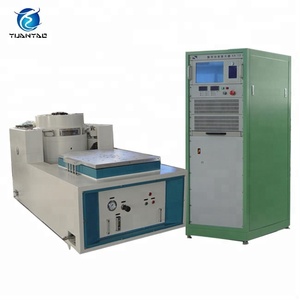Understanding Random Vibration Test: An Introduction
A Random Vibration Test is a crucial assessment method utilized to evaluate the performance and durability of products and components when subjected to various vibration levels. This testing methodology simulates real-world conditions that products may encounter during transportation and usage, thereby ensuring reliability and robustness. It encompasses a wide range of industries including aerospace, automotive, electronics, and defense, where mechanical integrity is essential. By subjecting products to controlled random vibrations, manufacturers can identify potential weaknesses, allowing for improvements before products reach the market.
Types of Random Vibration Test
Random Vibration Tests are categorized into different types, based on their specific application and the testing environment. Understanding these types can aid manufacturers in selecting the appropriate test for their products.
- Operational Random Vibration Test: This test mimics the actual operating conditions of a product, replicating vibrations that would occur during normal use.
- Qualifying Random Vibration Test: Used primarily to assess the durability and reliability of a product before its launch to the market, this test aims to ensure the product can withstand environmental stresses.
- Screening Random Vibration Test: This fast-paced testing type is meant to weed out weak or defective units prior to delivery, minimizing failure rates in real-world applications.
- Endurance Random Vibration Test: Focuses on the long-term effects of vibrations on a product, evaluating how prolonged exposure affects its performance and longevity.
Applications of Random Vibration Test
The applications of Random Vibration Testing are vast and impact numerous sectors where product reliability is key. Here's how various industries utilize this testing method:
- Aerospace: Ensures that aircraft components can withstand the extreme vibrations encountered during flight.
- Automotive: Tests vehicle parts for vibrations from driving on various terrains, helping to enhance safety and performance.
- Electronics: Evaluates the durability of sensitive electronic devices, helping to ensure they remain functional despite environmental stresses.
- Defense: Validates equipment and instruments used in military applications, ensuring they can operate in demanding conditions without failure.
Advantages of Conducting a Random Vibration Test
Implementing Random Vibration Tests offers significant advantages for manufacturers, ultimately leading to enhanced product performance and customer satisfaction. Key advantages include:
- Early Detection of Weaknesses: Identifies potential fail points in the design phase, allowing for corrective actions before production.
- Improved Product Reliability: Enhances long-term performance by ensuring products can endure real-world vibrations and stresses.
- Cost Efficiency: Prevents costly recalls and customer dissatisfaction by ensuring only the most reliable products reach the market.
- Compliance with Industry Standards: Facilitates adherence to regulatory requirements for safety and performance in various industries.


























































































































































































